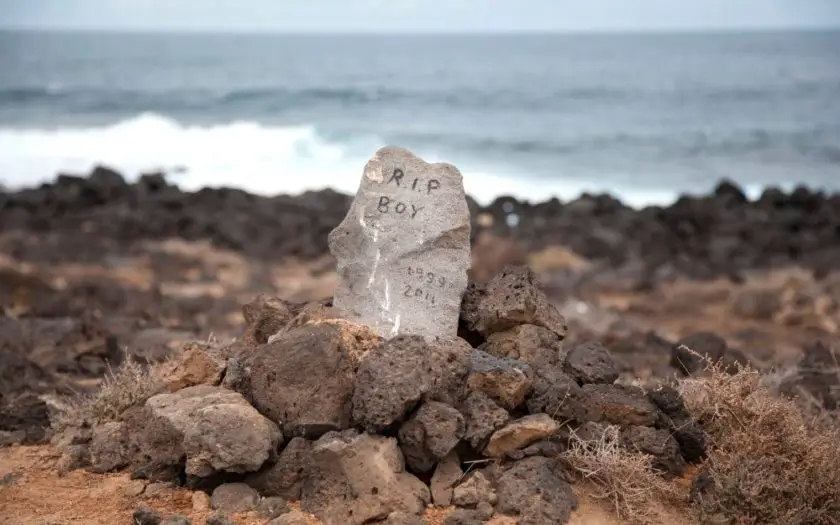After the death of a beloved kitty, you are faced with a personal (and for some, tough) decision: what to do with the body? Do you cremate or bury it? Personal factors such as your religion or spiritual beliefs can play a big role, but your financial situation may also influence the decision-making process.
This article will outline some of the key differences between cremation and burial and, hopefully, help you decide which one is best for you. You will also find a third alternative at the very bottom of this page.
An overview of the costs
| Method | Est. Cost |
| Cremation service | $100 – $300 |
| Home burial | $0 (Free) |
| Pet cemetery service | $500 – $1000 |
Should I cremate my cat?
Cremation is the preferred choice for many because it is an affordable option and can be arranged by your vet in most cases. You can also directly contact a cremation center if your cat died at home.
Cremation providers have enough experience to make the process as easy for you as possible. They will handle the transportation from your home, the actual cremation itself, and the delivery of the ashes back to your home.
Be sure to do some research and find a reputable provider. That way, if you have any special wishes, they will certainly do whatever they can to respect them.
Pros
- It’s relatively affordable, starting around $100 and up to $300 for private cremations
- The ashes can be worked into something memorable like a tattoo or a piece of jewelry
Cons
- You lose control over what happens to the body
Types of pet cremation for cats
Your cremation service provider will be able to explain all the different types of cremation that can be arranged, but here’s a quick overview of the most common options:
- Private cremation: Only one pet is placed inside the cremation chamber at a time. This type of cremation guarantees that the collected ashes belong 100% to your pet and or not mixed with those of other animals. Private cremation is obviously the most expensive option.
- Group cremation: A more affordable option that sees your cat cremated together with the bodies of other peoples’ pets. While group cremation is the least expensive, it usually results in the ashes being disposed of by the provider, leaving you with nothing tangible to remember your cat by.
- Partitioned cremation: Certain providers offer a mix of the two before-mentioned options. In partitioned cremation, multiple animals are placed into the chamber, but each has their own closed-off segment in order to prevent mixing of the ashes. Be advised that this is not a guarantee; mixing can still occur, although the odds of this happening are far slimmer compared to a group cremation.
Can I attend a pet cremation?
Upon your request, you can typically witness the cremation. Some providers will have an additional fee for attending, which is usually in the range of $20-60.
Possible objections
The chosen rites of passage are highly personal and can be influenced by culture, religion, and many other factors. While cremation is viewed by most as a respectful way to handle remains, you may very well have certain religious or spiritual beliefs which would cause you to want the body to remain intact after death.
If cremation does not suit your wants and needs, a proper burial is an obvious choice.
Should I bury my cat? (Pet Cemetary & Home Burials)

While cremation is affordable and easy, plenty of people opt for a proper burial instead. There are numerous reasons for not choosing a cremation, and all are equally valid; some people chose a burial because they want a tangible place to remember their dear one, whilst others have spiritual beliefs that align with a proper burial over cremation.
You can either bury a deceased pet on your own property (a so-called home burial), or you can enlist the services of a pet cemetery. The latter can be quite costly. Home burials, on the other hand, don’t have to cost anything and allow for a very private ceremony with family or friends.
If you plan to bury your pet at home, be sure to check local regulations beforehand. Some countries and states have strict rules to adhere to, while others do not permit you to bury pets without the explicit permission of local authorities. We have listed a few common rules further down in this article.
First, let’s take a look at the pros and cons of burials:
Pros
- You control what happens to the body
- Allows for a private ceremony
- Leaves a place to visit and remember your pet
- Possible to do at home for free
Cons
- If you decide to move in the future, visiting will become more difficult (or even impossible in case you decided to bury at home).
- Local regulations may not permit burial at home, and pet cemetery service can be expensive
Things to consider for burials at home
While burial in your backyard may seem like the easiest and most affordable option, it can be very dangerous to other pets and wildlife. When a cat is put to sleep, the vet uses a highly concentrated form of an anesthetic called pentobarbital to ensure a peaceful passing. This drug remains in the body for up to a year, and any animal scavenging on the remains will likely be poisoned by it (source)
Even if your cat was not euthanized, it could still have carried infectious disease, meaning the remains could be contagious. A home burial should therefore always be done properly.
How to properly bury a cat?
- Wrap the body in waterproof material, followed by a towel. Placing the body in a sleeping position may provide you with some comfort.
- Pick a site that is not close to any water source to prevent water contamination
- Do not bury pets on shared property. Your own terrain is the only option.
- Dig a hole that’s at least 1.5 meters or 5 feet deep, and cover the grave with heavy soil. This ensures that other animals can not easily dig up the body afterward
- Place a heavy stone on the finished grave to mark it and to prevent animals from digging in the soil
- If your cat was part of the family, you can accompany the burial with a small memorial. Sharing memories will help everyone process the loss.
Is it legal to bury a pet at home?
Every country and state has its own laws, so do not blindly assume that burying a pet is always legal. Here are a few general guidelines:
United Kingdom
In the UK, you are permitted to bury animals within your own home under the condition that the grounds are owned by you (so NOT rented), and that the site of burial is not near water. There must be at least 2 feet of heavy soil placed on top of the body to prevent scavenging. It is illegal to bury a pet anywhere outside your home property (except for a pet cemetery of course).
USA
Each state has its own laws for the burying of animals, which are definitely worth looking up. A common condition provided by (almost) all is the minimum depth of the grave, which is listed in order to prevent the grave from being disturbed by other animals. Many US states also require you bury your pet at a certain minimum distance from a neighbors’ property. If you are unsure of the rules that apply to the area, contact your local city council for information.
An alternative: Donate to science

Indeed, there is a third choice besides a burial or cremation. The final option is to donate your cat’s body for scientific research. Various veterinary universities need bodies for their students to dissect and learn from. After research or anatomy class is done, the body will be cremated, and the ashes returned to you if you so desire.
Not everyone will be so fond of the idea of their pet being dissected, but this cause is a good one. By donating the body you are contributing to the expertise of our next generation’s veterinary healthcare, and indirectly to the wellbeing of cats and other pets around the world.
If you are interested in donating your pet’s remains for research or education, your veterinarian can likely arrange this for you. Of course, you can also call up the local vet school directly and see what their options are.
Final words: A beloved pet’s passing is always a difficult time for the owner. Remember that there is no right choice here, and that it is only yours to make.






Thank you for talking about how much more affordable pet cremation is compared to burials. These are the kinds of things my sister would like to know since she wants to make the process of saying goodbye to her cat as quick and painless as possible. If it’s affordable, it would be much better, so I’ll help her get a pet cremation expert to help her out right away.